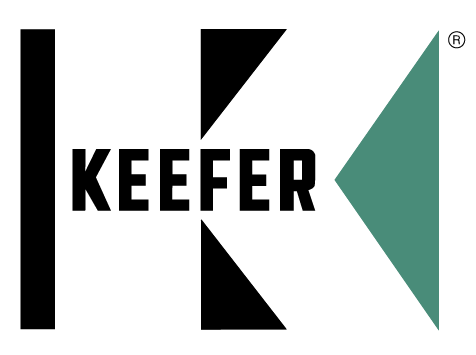“Let’s take extra care to follow the instructions or you’ll be put to sleep.”
– President Business, The LEGO Movie
Let’s say your company makes products and is sued by a group of individuals claiming they were injured by one of those products.
If you’re like most companies, you would notify your insurance carrier and then hope you have insurance coverage for those lawsuits. Assuming you do, you get a letter from a law firm the insurance company hires for you and then periodically provide information and documents when asked . . . you may even give a deposition if you’re lucky! Otherwise, you stay out of the mix and let this lawyer represent your company’s interests until a letter comes notifying you the case has been settled. No worries, right? WRONG!
Behind the scenes, the insurer is paying the fees for your lawyer (known as “panel counsel” since they are chosen from a panel list acceptable to the insurer). The insurer is also controlling the defense strategy for your company, including when and how to settle the case. Your insurance policy permits the insurer to do this, and also requires your cooperation, so this is perfectly normal. However, if you are not managing this panel counsel, you could find yourself blindsided with higher premiums than expected at renewal.
A Brief Case Study
Let me give you an example based on a matter I recently concluded for a manufacturing client. This company was one of several defendants which had been sued by the estate of an individual who was killed in an accident. Fortunately, this company was insured, so it forwarded the lawsuit to the insurance carrier, which in turn assigned panel counsel to defend the company. So far, so good.
A couple months into the lawsuit, I was called by the head of the company after he received a copy of a 20-page status letter prepared by the panel counsel to the insurer. He was confused since his company had an agreement with a third party supplier, requiring that supplier to accept full responsibility for defense and any damages to the extent of any defect claims involving my client’s products. Given my background and experience with insurers and managing claims and litigation, he wanted me to review and provide guidance.
Here’s where it got dicey . . . panel counsel acknowledged the supply agreement in the report but buried it low in the list of “to-do” action items, recommending instead extensive discovery, at least 20 depositions, retaining and deposing multiple experts and then preparing and filing a couple motions for good measure. To make matters worse, panel counsel opined in the report that our mutual client could be found 15% – 25% liable for the death at trial, and that damages could well exceed $5 million.
Your Panel Counsel Can Adversely Affect Your Premiums
Let me tell you a little bit about how insurance adjusters generally set reserves. When a lawsuit comes in, the adjuster will set defense cost reserves (e.g., attorney fees, discovery costs, experts) based on panel counsel’s recommended strategy. The adjuster will also set loss reserves based on the anticipated settlement or trial value at different mile-markers in the case. Of course, the adjuster relies on panel counsel’s periodic status letters to determine these reserves.
In my client’s case, a reasonable adjuster could have reviewed panel counsel’s 20-page letter and, based on the suggested strategy and exposure, set initial defense cost reserves of at least $50,000 with another $250,000 to $500,000 in loss reserves. This, of course, in addition to the $10,000+ already spent in the initial review and preparation of that 20-page status letter. This was my client’s first claim related to an alleged product defect. Had the adjuster in fact reserved this way, my client’s insurance premiums could have skyrocketed for the upcoming renewal period.
Effectively Managing Panel Counsel
After reviewing the status letter, followed by a brief outburst of expletives, I calmed down and called panel counsel to introduce myself as managing counsel for the case on behalf of the company. We discussed the current strategy and exposure assessment in light of the exculpatory supply agreement. After explaining the harm that could potentially be done to our mutual client at renewal, panel counsel ultimately agreed that the best course would be to immediately tender defense to the third party supplier, performing only necessary discovery items afterward. In the event the supplier balked, it would be sued and we would seek summary judgment given the clear and unambiguous language of the contract.
Having agreed to this new strategy, I requested panel counsel forward the insurance adjuster a status letter downgrading anticipated loss exposure to $0 given indemnity. All of this was set in motion within 24 hours of that phone call, the case was tendered to the third party which was later brought into the case. As a “happily ever after,” the case settled at mediation with nothing paid by my client and minimal defense costs incurred in the interim. At renewal, the insurance premium increased only nominally as a result of the claim . . . things could have been a lot worse.
It’s a Team Effort
Don’t get me wrong, the insurer’s relationship with panel counsel is important and necessary, as insurers need to be able to predict outcomes of lawsuits as much as possible in order to make business decisions on behalf of their insured businesses (and themselves!). However, if these lawsuits are not also managed by counsel solely representing the insured’s interests, this dynamic can lead to excessive defense costs, exposure to unnecessary strategies and improper liability and damages assessments. All of this can lead to adverse reserving by the claims adjuster and, ultimately, skyrocketing premiums or worse . . . loss of insurance coverage altogether.
Long story short, don’t simply hand off your case to the insurer and then forget about it. Review status letters before they are sent to the insurer. Understand the litigation strategies being developed and implemented, as well as potential loss exposure. Don’t be afraid to question how these things could affect your existing insurance coverage. In sum, manage the case with a critical eye and, if commercially feasible, retain a Preventive Lawyer looking solely out for your company’s best interests to assist.
KEEFER is your ounce of prevention.





















